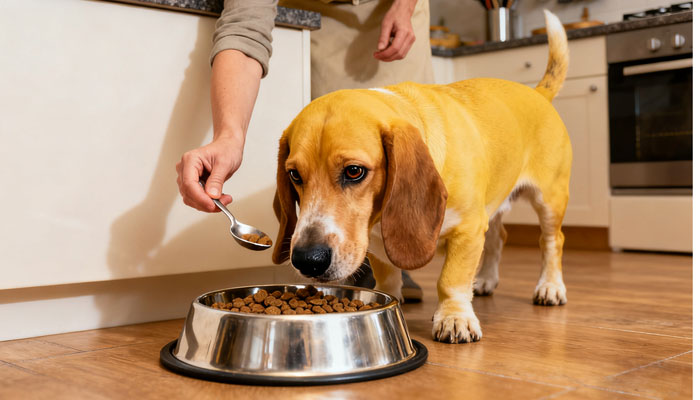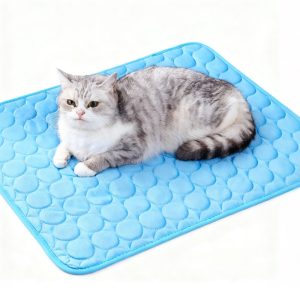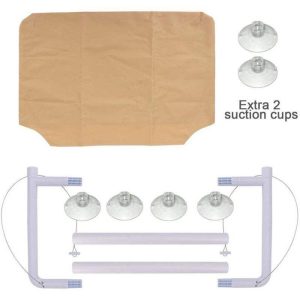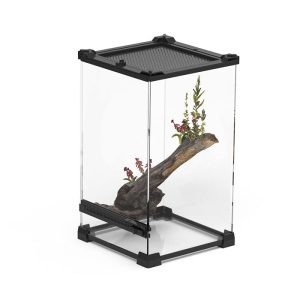Basset Hound: A Complete Care Guide

The Basset Hound, with its distinctive silhouette of short legs and long body, floppy ears, and gentle temperament, has become a beloved companion dog for many families. Originally from France, this breed was initially used for tracking game but now primarily serves as a family pet. Proper care must align with their physical characteristics and temperament to maintain their health and vitality.
I. Breed Characteristics and Suitable Environment
Basset Hounds possess a gentle, people-friendly disposition and typically exhibit friendly behavior toward humans and other pets, making them suitable for most household environments. While not small in stature, their exercise requirements are moderate, allowing them to adapt well to apartment living provided they have sufficient space for brief activity.
With an exceptionally keen sense of smell, Basset Hounds are easily drawn to external scents. Their living environment requires safety precautions to prevent them from wandering off while following a scent trail. Additionally, this breed is emotionally sensitive and unsuited for prolonged periods of isolation. Owners must dedicate time to companionship to prevent anxiety.
II. Scientific Diet and Nutritional Requirements
Basset Hounds are naturally prone to weight gain. Excess weight increases joint strain and health risks, making dietary management crucial. Select dog food appropriate for the dog’s age:
– Puppies require diets rich in protein and calcium to support bone development.
– Adult dogs need low-fat, high-protein formulas to manage fat intake.
– Senior dogs should have reduced calories and increased dietary fiber to maintain digestive health.
Feeding should follow a consistent schedule with measured portions, administered 2-3 times daily, avoiding free-feeding. Additionally, avoid toxic foods like chocolate, onions, and grapes. Limit treat frequency to prevent interference with appetite for regular meals.
III. Appropriate Exercise and Balanced Activity
Despite their short legs, Basset Hounds require regular exercise to maintain a healthy weight and overall condition. Schedule two daily walks of approximately 30 minutes each on flat surfaces, avoiding steep slopes or frequent stair climbing to minimize joint wear.
Keep them on a leash at all times during walks. Leverage their keen sense of smell by allowing sniffing and exploration in safe areas, but maintain constant supervision to prevent wandering off. Basset Hounds are sensitive to heat; avoid midday walks in summer, opting instead for cooler morning or evening hours, and ensure they stay hydrated.
IV. Paying Attention to Specific Areas of the Basset Hound
The Basset Hound’s long ears require special care. Their floppy ears are prone to accumulating dirt and moisture, which can lead to ear infections. Clean them 1-2 times per week using a specialized ear-cleaning solution. Gently wipe away visible debris from the outer ear canal, avoiding insertion into the ear canal to prevent damage to the eardrum.
Their coat is short and dense. Though shedding is moderate, weekly brushing with a soft-bristle brush (1-2 times) is essential to remove loose hair and promote skin circulation. Limit bathing to 1-2 times monthly using mild dog shampoo to prevent stripping natural oils. Regular nail trimming is crucial to prevent overgrown nails from curling and embedding into paw pads, which can impair mobility.
V. Common Health Issues and Prevention
Basset Hounds are prone to hip dysplasia, eye diseases (such as glaucoma), and obesity-related cardiovascular problems. Annual comprehensive check-ups (1-2 times per year) are recommended, including skeletal examinations, eye screenings, and weight assessments for early detection and intervention.
Puppies must complete their vaccination schedule on time, with regular booster shots for adults. Regular internal and external parasite prevention is essential to guard against infestations. Monitor your dog’s energy levels, appetite, and bowel movements daily. If you notice lethargy, decreased appetite, joint swelling, or abnormal defecation, seek veterinary care promptly to avoid treatment delays.
admin
-
Sale!

Washable Pet Cooling Pad for Cats and Dogs
$10.99Original price was: $10.99.$9.99Current price is: $9.99. This product has multiple variants. The options may be chosen on the product page -
Sale!

Washable Cat Window Hammock Cooling Bed
$23.99Original price was: $23.99.$22.99Current price is: $22.99. -
Sale!

Tropical Amphibian Rainforest Tank, Lizard Cage
$38.99Original price was: $38.99.$36.99Current price is: $36.99. -
Sale!

Silent 4-in-1 Waterproof Charging Dog Hair Trimmer
$49.88Original price was: $49.88.$47.99Current price is: $47.99.